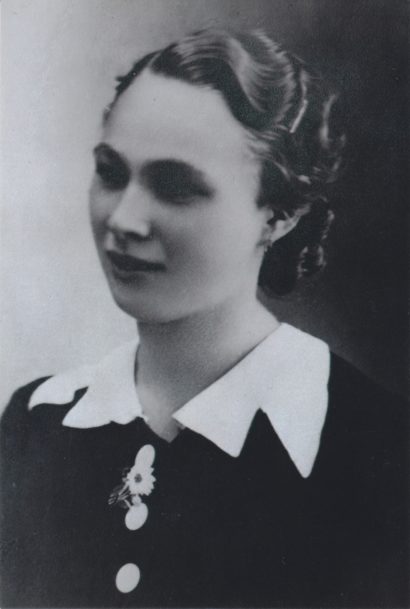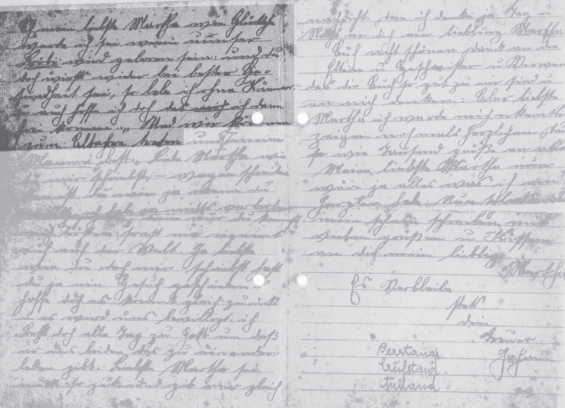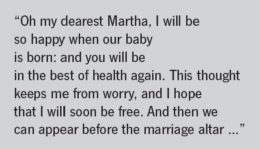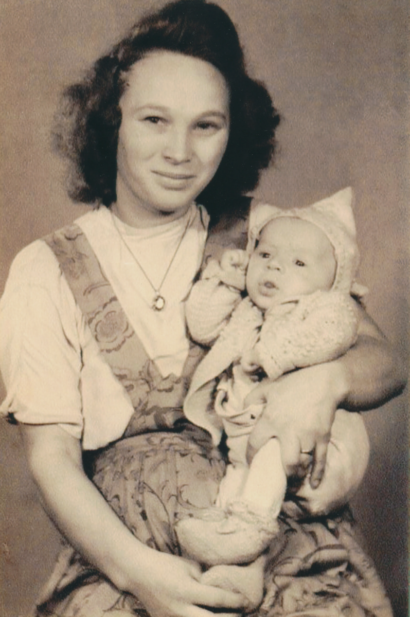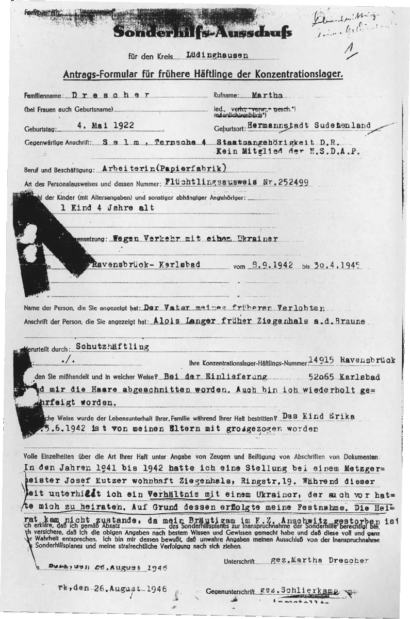Martha Bürger
born May 4, 1922
![]()
Martha Drescher at age 17, 1939 (private collection)
Imprisoned for a Relationship with a Forced Laborer
Martha Drescher was born in the Sudetenland as the oldest daughter of a working-class family. In 1938, her family moved to the town of Bad Ziegenhals in Silesia (today: Głuchołazy, Poland). In 1940, Martha’s boyfriend was killed on the western front. She was expecting his child, but their baby died shortly after birth. One year later, the 19-year-old secretly began a relationship with Ivan Litvinchuk, a Ukrainian forced laborer in Bad Ziegenhals. Martha became pregnant again.
The forbidden relationship was discovered by the father of Martha’s deceased boyfriend, who then denounced the young couple. Martha and Ivan were arrested by the Gestapo in March 1942 and accused of a “prohibited sexual contact.” Ivan Litvinchuk was sent to the Auschwitz concentration camp, where he died in mid-January 1943. Martha Drescher’s sentence was suspended until her child was three months old, after which she was sent to the Ravensbrück concentration camp. Her daughter Erika remained with her parents. After several months, Martha Drescher was transferred to the subcamp of Neurohlau near Karlsbad (today: Karlovy Vary, Czech Republic), which was later reassigned to Flossenbürg. Martha Drescher worked as a forced laborer in a factory that produced dishware for the SS, the Wehrmacht and the Red Cross. The prisoners were chronically malnourished and were frequently harassed and mistreated by the guard staff. Beginning in mid-March 1945, the SS began to dissolve the camp. After the last guards fled, Martha Drescher was finally free.
![]()
Letter from Ivan Litvinchuk to Martha Drescher written from jail, May 25, 1942 (private collection)
![]()
In summer 1946, she arrived in Bavaria with a transport of expellees from Czechoslovakia. With help from the Red Cross tracing service, she was finally able to locate her family, who had fled Silesia toward the end of the war. Her daughter Erika was meanwhile four years old. In 1947, Martha married Gerhard Bürger, with whom she had five more children. Only temporarily she and her daughter received support from the German authorities as victims of political persecution under the Nazi regime. In 1954, Martha Bürger died of leukemia. She was 31.
![]()
Martha Bürger with her son Siegfried, 1947 (private collection)
![]()
Martha Drescher’s application for special assistance, 1946 (private collection)
The application was initially approved on the basis of her incarceration in a concentration camp. Special assistance included financial support, increased food rations, the right to larger accommodations, and preferential treatment in job placement. In 1948, Martha Bürger’s application was reviewed. The review board concluded that, “the cited grounds for incarceration, namely relations with a Ukrainian, may be understood as a political act in the broadest sense of the term, but do not constitute an act carried out in opposition to National Socialism.”
